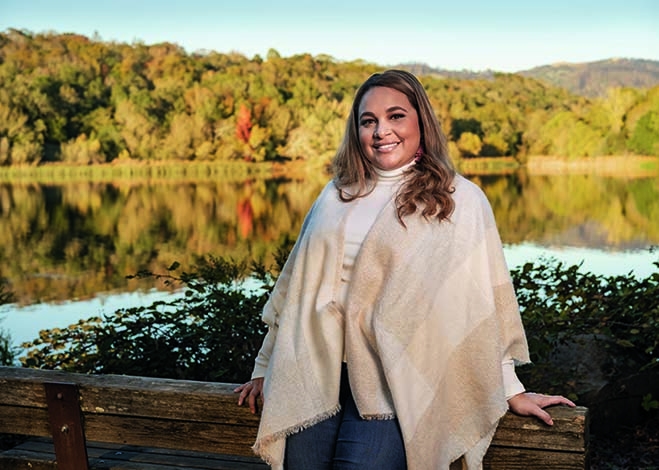
Young at Heart Patient Undergoes Surgery at Age 27
At just 27, Jasmine Robledo needed open-heart surgery. An Adventist Health surgeon helped her keep her life on track.
When Jasmine Robledo scheduled a physical with her primary care provider, she did not anticipate a diagnosis of a heart problem. After all, she was just 27 years old — decades ahead of the stage of life when someone might expect to have heart concerns.
“I was always really healthy, but my doctor heard a heart murmur,” Robledo explains. “I had an ultrasound, and they told me that there was a problem with my heart valve not closing.”
Robledo was diagnosed with a heart valve insufficiency. This happens when a valve, which helps blood flow through the heart and into the body, doesn’t close properly. Some blood can leak backward through the valve instead of forward, which forces the heart to work harder to pump blood.
“The cardiologist said that my heart was losing a lot of blood, and that if I was in a car accident or got hit hard in the chest, I could die,” Robledo says. “I was scared, and I started crying. I thought, am I going to need surgery? Am I going to die?”
Expert partnership
Robledo knew she needed support from Adventist Health St. Helena’s skilled cardiology team. She met Gan Dunnington, MD, a cardiothoracic surgeon, who recommended surgery to repair the valve. “I want to be a mom, so I knew I needed to take care of my heart, but I was nervous about surgery,” Robledo recalls. “Dr. Dunnington was so reassuring. He told me that because I was young, I would be OK in the long run.”
Robledo, who was born and raised in St. Helena, was confident in her choice to stay at Adventist Health rather than go to a bigger city for her operation. “I worked at Adventist Health at the time, and I knew that everyone who worked there was great,” she says. “Adventist Health felt like home.”
Tailored treatment
Dr. Dunnington and his team replaced the faulty aortic valve in Robledo’s heart. During this operation, a surgeon replaces a leaky heart valve with a mechanical valve or a valve from a pig or cow heart. While patients younger than 50 typically receive a valve made of titanium or carbon, people with this type of replacement must take blood thinners for the rest of their lives, which could be a problem during pregnancy. Dr. Dunnington knew Robledo wanted to have children one day, so he recommended an animal valve to ensure that she could carry a child and avoid blood-thinning medication, which can be dangerous to a fetus. “He knew I wanted to be a mom, and he made sure I could still do that even after my surgery,” Robledo says.
Full circle
Robledo, who was born at Adventist Health St. Helena, feels as though she was reborn there 27 years later. “Dr. Dunnington and his team saved my life. I am forever indebted to them,” she says. “God works in mysterious ways. He put me back where I needed to be.”
Two years after her operation, Robledo took a new job at the hospital as a surgery scheduler arranging operations for Dr. Dunnington’s patients. “He’s the reason I loved working at Adventist Health St. Helena,” she says. “He influenced me to help other people because he helped me.”


